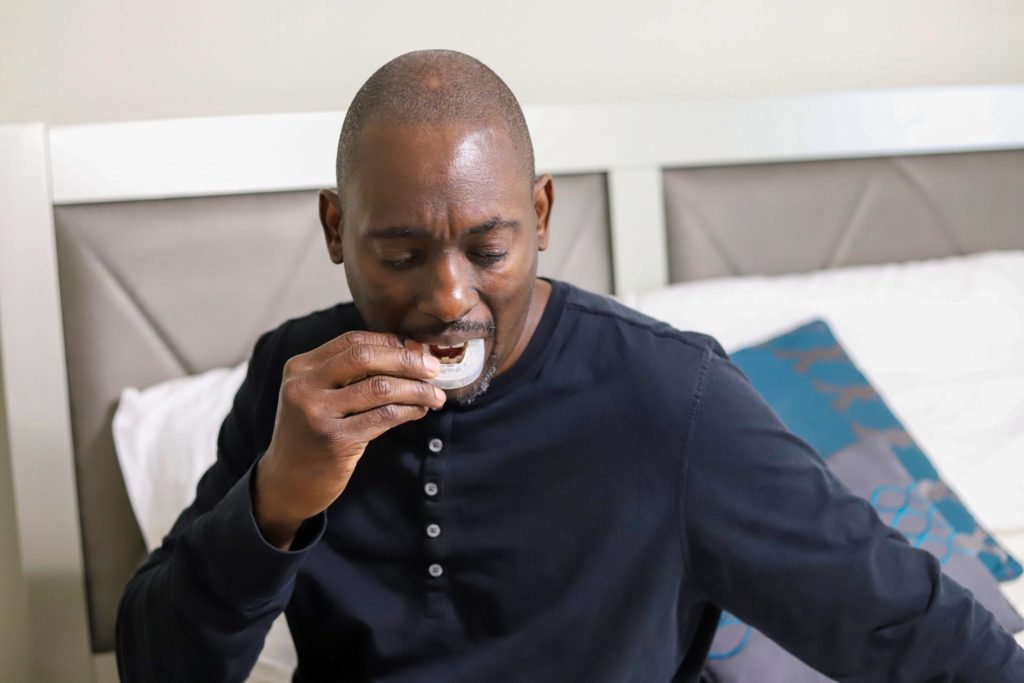One of the many services your dentist can provide is making custom mouthguards. While mouthguards are available at convenience or athletic stores, consider a custom-fit mouthguard instead. Your dentist will be able to create a mouthguard specific to your needs.

Sports Usage
If you play any type of contact sport, you should consider a mouthguard. Even if it is not a team sport, a mouthguard can prevent many dental injuries with activities like skateboarding, mountain biking, or rock climbing. Intense physical activities are a great way to stay in shape and be part of a community.
However, many sports involve the risk of injury to your teeth. You can avoid most dental injuries by using a mouthguard. For example, stray balls, bad falls, and unchecked elbows can send you to the emergency room or an emergency dentist. However, you can minimize or eliminate these problems by wearing a mouthguard.
Sleep Apnea
Sleep apnea is a serious sleep disorder that disrupts your breathing while sleeping. There are a few types of sleep apnea, but the most common form is obstructive sleep apnea. Obstructive sleep apnea occurs when the muscles and soft tissues in your mouth, neck, and throat relax too much, blocking your airway. Medical professionals consider sleep apnea dangerous because lack of oxygen can affect your heart, immune system, cognitive abilities, and your quality of life.
If you have a mild to moderate case of sleep apnea, your dentist can provide you with an oral appliance. An oral appliance is like a mouthguard that you wear at night. It will keep your jaw in a proper position while you sleep. This helps keep the soft tissues from obstructing your airway, allowing you to breathe as you sleep.
Bruxism
Another common use for custom mouthguards is to protect your teeth from the effects of grinding. Bruxism is when a patient grinds their teeth or clenches their jaw. Usually, patients will grind their teeth in their sleep, so they may not be aware of the condition. It is generally considered a sleep-related disorder.
However, some people will clench their teeth during the day to cope with stress, anger, or anxiety. There are cases of bruxism that are mild and do not need treatment. Unfortunately, for some people, treatment is necessary to avoid more severe side effects.
When you grind your teeth, you can slowly wear down the enamel and the shape of your teeth. Not only can this increase the likelihood of tooth decay, but it can also affect your ability to chew your food properly. Over time, your teeth can flatten. In addition, the excess strain on your teeth can cause them to fracture or break. You can also experience pain and tension in the muscles of your face, neck, and jaw.
A mouthguard can equalize the pressure from bruxism across all of your teeth. Additionally, the soft material provides a barrier between your top and bottom teeth. This prevents you from wearing down your teeth and enamel.
